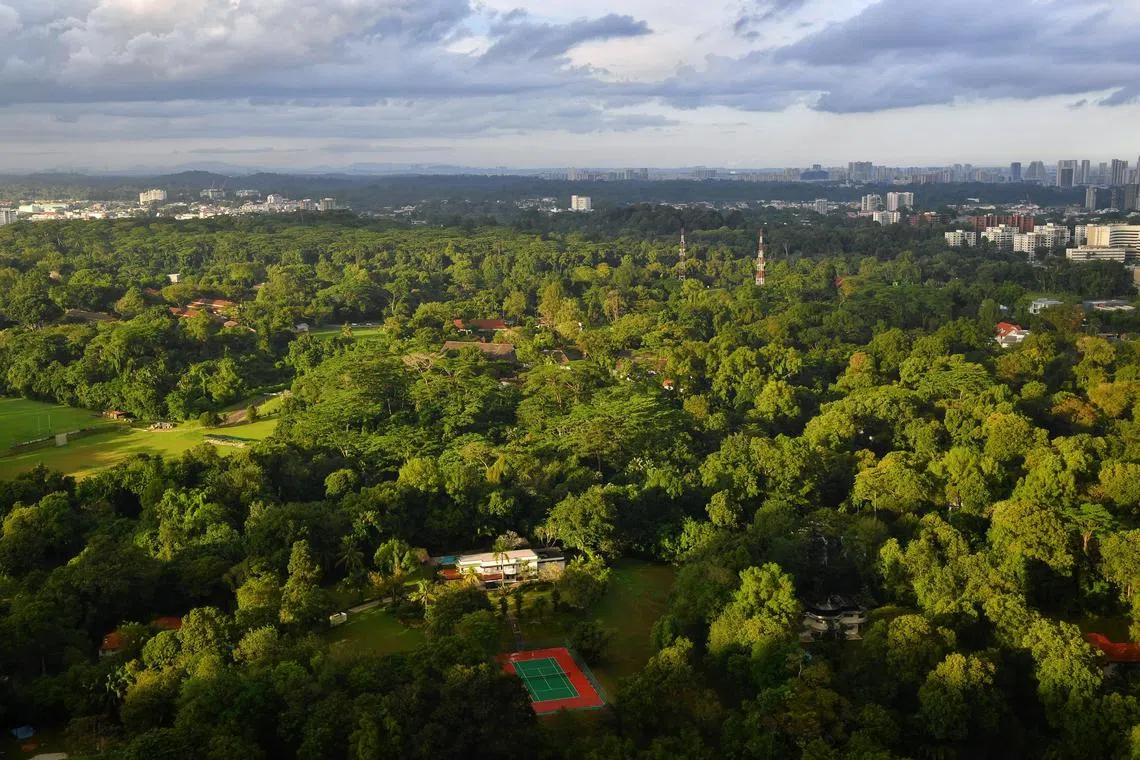Trespassers to face stiffer penalties for encroaching on and damaging state land
Sign up now: Get ST's newsletters delivered to your inbox

The State Lands Protection Bill raises the maximum fines for unauthorised activities on state land from $5,000 to $50,000.
ST PHOTO: CHONG JUN LIANG
Follow topic:
SINGAPORE – Trespassers and those who carry out unauthorised activities on state land will soon face stiffer penalties, and they may be ordered by the courts to compensate the Government for the damage caused.
This comes after Parliament passed the State Lands Protection Bill
Besides stiffer penalties, Singapore Land Authority (SLA) officers will also get wider enforcement powers, such as issuing fines for minor offences, and entering and inspecting any land without a warrant if there is reason to suspect unauthorised activities.
Under the Bill, the State Lands Protection Act will replace the existing State Lands Encroachments Act (SLEA), which was last reviewed in 1974.
SLA had said in early November that since the last review, the types of encroachment and misuse of state land have evolved, rendering many of the SLEA’s provisions outdated and ineffective.
Speaking in Parliament on Wednesday, Senior Parliamentary Secretary for Law Rahayu Mahzam said the new laws put in place an up-to-date and comprehensive enforcement framework to support SLA in protecting state land from misuse and damage.
MPs who spoke on the Bill on Wednesday sought clarification on how members of the public would know if they have encroached onto state land.
Under the new laws, those accused of unauthorised activities on state land have to prove they did not know, and could not reasonably have been expected to know, that the land they have encroached on was state land.
Mr Louis Ng (Nee Soon GRC) said that while it is obvious in some situations that people have encroached on state land, such as when makeshift shelters are set up in forested areas, it is less clear in cases that involve the boundaries between private property and state land.
Mr Yip Hon Weng (Yio Chu Kang SMC) said that while publicly available digital resources such as OneMap allow people to check land ownership, there is no clear boundary between state land and non-state land on the ground, which may lead to unintentional encroachment.
Ms Nadia Samdin (Ang Mo Kio GRC) also asked if increasing the maximum fines by 10 times is proportional as potential offenders may include elderly residents who grow vegetables on state land, or those who set up small altars or sleep rough in such sites.
“These retired seniors’ activities hark back to a simpler time for them, and are generally not harmful to themselves or others,” said Ms Nadia, who added that it can prove difficult for them to pay the higher penalties.
In response, Ms Rahayu said: “Wholly accidental incursions would not be an offence.”
She added that SLA typically engages those encroaching on state land before taking enforcement action.
She said that in instances where private home owners are unsure if they are encroaching on state land, they also should take responsibility, such as by engaging registered surveyors, to check if any encroachment has occurred.
Ms Rahayu noted that while the law sets out maximum penalties, not all trespass cases are eventually prosecuted in court. The penalties imposed by the court upon conviction ultimately depend on the facts and circumstances of the case, she said.


